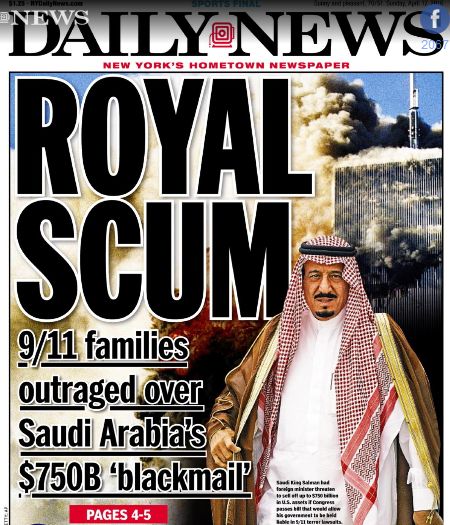
WASHINGTON, DC (Tasnim) – A former US national intelligence officer said an ongoing investigation by Washington into reports about Saudi Arabia’s role in 9/11 terrorist attacks is not “open” and “honest”.
“We wonder why parts of 9/11 investigations have been kept from the American people. Even the recent 25 pages on Saudi Arabia, parts of it are still being redacted. If this was an open and honest, why is its information being kept from American people? And of course we know that it was not honest investigation and that people who were in charge of the 9/11 investigation were actually very closely allies with members of the administration,” Elizabeth Murray told Tasnim.
Murray served as Deputy National Intelligence Officer for the Near East in the National Intelligence Council before retiring after a 27-year career in the US government, where she specialized in Middle Eastern political and media analysis.
She further called for a “completely independent” and “non-politically-affiliated” probe into the attacks, saying, “Actually a truth commission (should be set up) to find out what really happened on 9/11 because we see where 9/11 has taken the world, has taken this country, my country, which I do not even recognize anymore and how so many countries, including Syria now are just being destroyed. We have to go back to the source of this; what really happened on 9/11 and benefited from 9/11?”
Elsewhere in her comments, Murray referred to John Kiriakou, a former CIA employee who blew the whistle on a CIA torture and spoke publicly about it for the first time, and said, “Unfortunately, John is the only person even related to the issue of CIA and torture that has served time in prison. None of the actual perpetrators of the torture in Guantanamo or at Bagram airbase or at any of the black sites have seen inside of a prison. These are still walking free out on the streets, while John and his family lost their home and paid the ultimate price.”
Slamming the interventionist policy of the United States in Libya and Iraq, the American analyst said, “When I started out my work, I was very idealistic because I was an editor and analyst for foreign media. In fact, it was my job for example to have the speeches of people like Saddam Hussein or Muammar Gaddafi translated from Arabic into English and we really very idealistically felt that we were helping our policy makers to understand what these leaders were saying so that they could then use this information in their foreign policy. But we did not realize was that all the work that we were doing was actually being used only to the ends of war or to means that would undermine or ultimately sabotage these leaders. Of course we all know what became to Saddam Hussein; we all know what happened to Muammar Gaddafi, and furthermore you can look at both of these countries and see that they are in ruin now after US intervention. So, really for me, what began to change my mind was the quality whether I was really contributing was during the run up to war, the Iraq war, in 2003?
